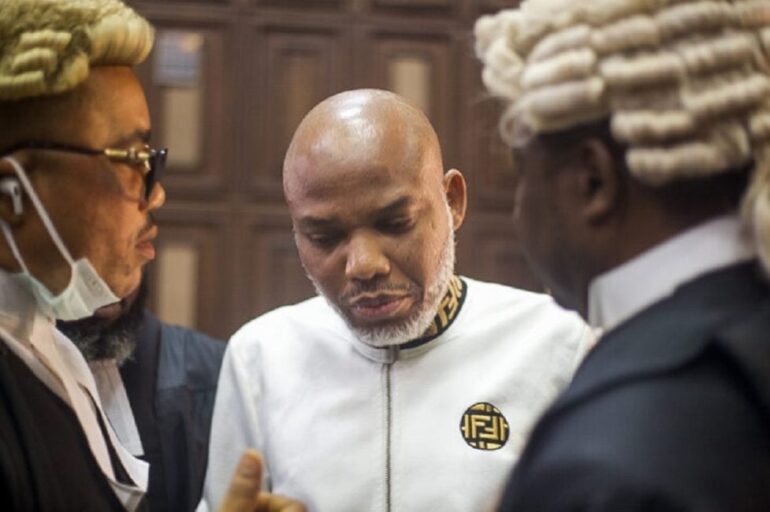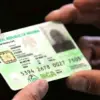The trial of Nnamdi Kanu, leader of the Indigenous People of Biafra (IPOB), resumed on Friday at the Federal High Court in Abuja, presided over by Justice James Omotosho. The proceedings featured the cross-examination of the prosecution’s principal witness, who admitted that no instrument of terrorism was found in Kanu’s possession.
The court had earlier granted the Federal Government’s request to shield prosecution witnesses behind a screen. The prosecution is led by senior advocate and former Attorney General of the Federation, Adegboyega Awomolo (SAN), while Kanu’s defence is headed by another former Attorney General, Kanu Agabi (SAN).
The prosecution’s first witness (PW1), identified only as AAA, is an operative of the Department of State Services (DSS). During cross-examination, AAA confirmed he participated in Kanu’s arrest, took his statement, and escorted him to Abuja, but was not in charge of the full investigation.
When asked if any offensive or incriminating items were found on Kanu, AAA said no. He stated that while he analyzed Kanu’s phone, the analysis was deemed immaterial and was not included in evidence. He also acknowledged that many of the items confiscated from Kanu nearly a decade ago may have since become obsolete.
AAA confirmed that a record exists of items returned to the defendant, though he did not personally handle the documentation. He also said no weapons or instruments of violence were found on a woman arrested alongside Kanu, nor was her presence considered to support terrorism.
When asked directly whether any instrument of terrorism was found on Kanu, the witness responded, “No.”
AAA added that Kanu did not mention any collaborators during interrogation and claimed ignorance about whether anyone else is currently standing trial for terrorism linked to Biafra agitation. He acknowledged hearing, via media reports, about Simon Ekpa continuing IPOB-related activities, and confirmed the DSS is pursuing his extradition.
On whether Kanu was charged with property damage, AAA replied ambiguously: “Maybe not personally and virtually.” He said Kanu had made inciting statements on social media but could not link those to specific acts of violence by others.
The witness recalled that Kanu referred to Nigeria as a “zoo” but could not confirm if he had criticized corruption, youth unemployment, or underdevelopment. He also remembered Kanu stating that IPOB was not an armed group and did not provide combat training to its members.
Agabi challenged the narrative by highlighting ongoing violence across northern Nigeria unrelated to separatist agitation. AAA agreed that killings in states like Kaduna, Zamfara, and Benue were not tied to secessionist movements. He also acknowledged that although Nigeria’s highways are “largely safe,” security challenges remain, including attacks on schools, religious institutions, and public transportation.
Kanu’s trial, centered on terrorism and treasonable felony charges, began in 2015 after his initial arrest in Lagos. The case has faced numerous delays, hampering the presentation of evidence until recently. Originally charged alongside four co-defendants, Kanu’s case was severed in 2018 after he fled Nigeria. The other defendants continued to face trial separately.
Kanu was re-arrested by Nigerian authorities in Kenya and extradited in June 2021.


